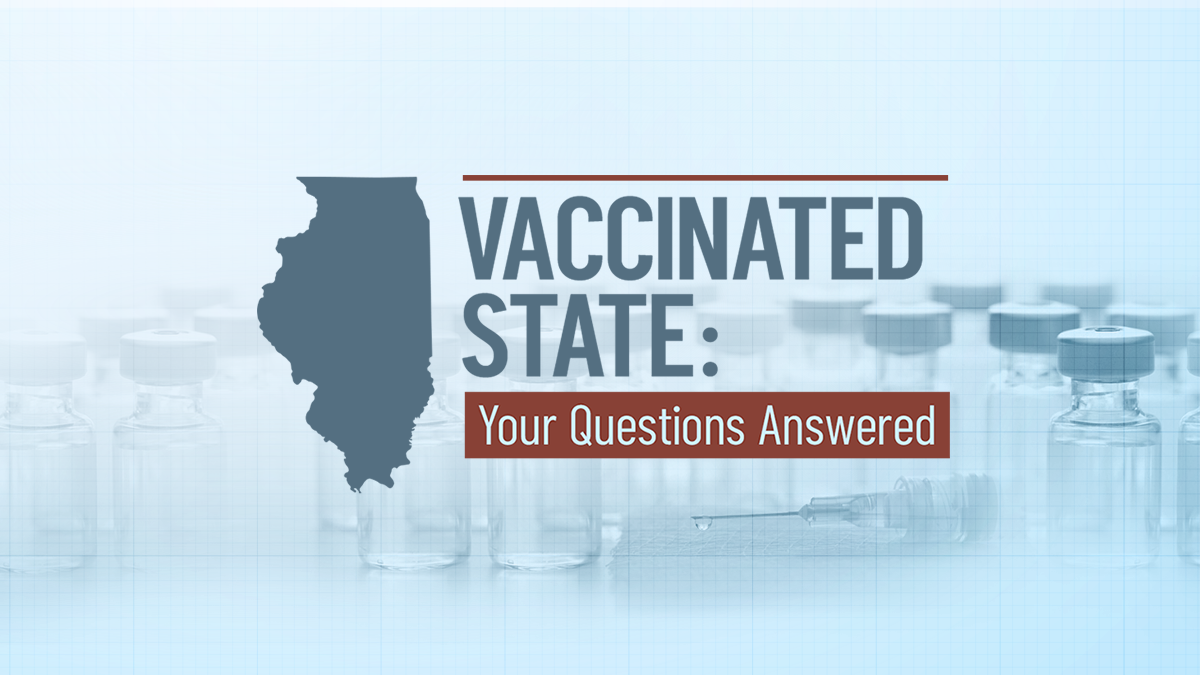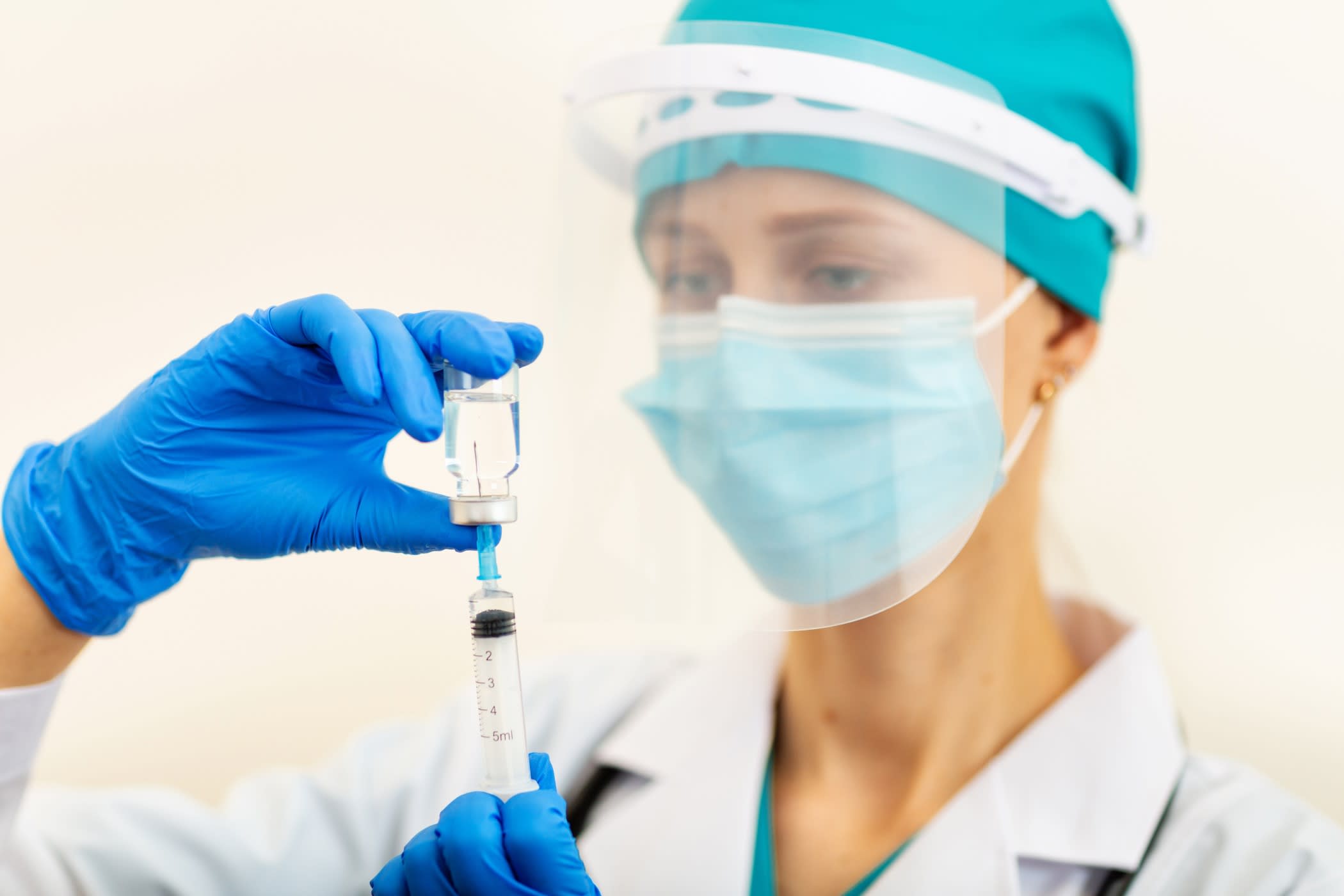Is it safe for pregnant or breastfeeding women to receive the coronavirus vaccine?
According to medical experts, the answer is: it depends.
Pregnant women will soon be eligible to receive the coronavirus vaccine in Illinois as the state prepares to expand its Phase 1B criteria to include some high-risk conditions.
According to Dr. Emily Landon, executive medical director of Infection Control and Prevention at University of Chicago Medicine, pregnant women weren't included in studies surrounding the vaccines, but "that doesn't mean that that's because there was a reason to believe it might be dangerous."
"In fact, the studies in animals about toxicity showed that there's really none," Landon said during NBC 5's "Vaccinated State" panel. "We've been vaccinating pregnant health care workers, our obstetrician gynecologist friends have no concerns about this and we've vaccinated a lot of pregnant people and they've done beautifully."
Landon stressed the contracting coronavirus while pregnant can also pose an added danger.
The Centers for Disease Control and Prevention reported that pregnant people who contract COVID-19 "have an increased risk of severe illness," including the risk of an infection that could lead to ICU admission, mechanical ventilation, and possibly death. Pregnant people with COVID-19 could also face an increased risk of adverse pregnancy outcomes, such as preterm birth, the agency added.
According to preliminary findings of a study from the National Institutes of Health, pregnant women who experienced severe symptoms of COVID-19 had a higher risk of complications during and after pregnancy.
"Compared to nonpregnant women who have the same health and age, a COVID-infected woman is about 1.3 to 1.4 times more likely to end up in the hospital when she's pregnant," Dr. Regan Theiler, a Mayo Clinic obstetrician, said in a statement.
Feeling out of the loop? We'll catch you up on the Chicago news you need to know. Sign up for the weekly Chicago Catch-Up newsletter.
"COVID during pregnancy is dangerous," Landon said. "So, the vaccine is a safer choice."
Click here for a complete breakdown of advice for pregnant women and the COVID vaccine
The University of Chicago Medicine also reports that for some people vaccinated late in their pregnancy, "it is likely that the antibodies your body produces in response to the vaccine will be passed to the fetus through the placenta and may provide some protection against COVID-19, the same way a flu vaccine can help protect your baby against the flu."
The CDC and Advisory Committee on Immunization Practices have recommended pregnant people be offered the vaccine, but should discuss the decision with their health care provider first.
"Based on how mRNA vaccines work, experts believe they are unlikely to pose a specific risk for people who are pregnant," the CDC stated. "However, the actual risks of mRNA vaccines to the pregnant person and her fetus are unknown because these vaccines have not been studied in pregnant women."
The World Health Organization took a similar stance, saying "we don’t have any specific reason to believe there will be specific risks that would outweigh the benefits of vaccination for pregnant women."
The American College of Obstetricians and Gynecologists also recommends that COVID-19 vaccines "should not be withheld from pregnant individuals who meet criteria for vaccination based on ACIP-recommended priority groups."
Still, data surrounding the vaccine and pregnancy remains "limited."
Pregnant women were excluded from trials for the vaccine, leaving little information on the vaccines' safety for expectant mothers.
Earlier this month, however, White House health advisor Dr. Anthony Fauci said there have been "no red flags" seen in the more than 10,000 pregnant women who have received vaccine shots so far.
"The FDA, as part of the typical follow up you have following the initial issuing of any [emergency use authorization] have found, thus far, and we've got to be careful, but thus far, no red flags about that, about pregnant women," Fauci told The Journal of the American Medical Association in an interview.
The CDC said studies of the Pfizer-BioNTech vaccine are ongoing, and both the Pfizer and Moderna vaccine manufacturers "are monitoring people in the clinical trials who became pregnant."
"While safety data on the use of COVID-19 vaccines in pregnancy are not currently available, there are also no data to indicate that the vaccines should be contraindicated, and no safety signals were generated from DART studies for the Pfizer-BioNtech and Moderna COVID-19 vaccines," the American College of Obstetricians and Gynecologists states.
The CDC recommends expectant women consider the following, and address it with their doctors, as they prepare to make their decision:
- The likelihood of exposure to SARS-CoV-2, the virus that causes COVID-19
- Risks of COVID-19 to them and potential risks to their fetuses
- What is known about the vaccine: how well it works to develop protection in the body, known side effects of the vaccine, and lack of data during pregnancy
In addition, pregnant women are not expected to experience more severe side effects from the vaccine, experts said.
According to the CDC, some people who received the vaccine did experience a fever, particularly after their second dose.
"Pregnant people who experience fever following vaccination may be counseled to take acetaminophen because fever has been associated with adverse pregnancy outcomes," the CDC stated. "Acetaminophen may be offered as an option for pregnant women experiencing other post-vaccination symptoms as well."
Pregnant people should also talk to their doctors if they have a history of allergic reactions to any other vaccines or injectable therapy.
As for women who are breastfeeding, Landon told NBC 5 "there is no reason to believe that that molecule can cross into the breast milk."
"In fact it sort of degrades inside your arm within an hour of you getting the shot. So there's really no need to worry about it and it's not been found in breast milk," Landon said. "You should go right ahead and keep on breastfeeding."
The CDC reported "mRNA vaccines are not thought to be a risk to the breastfeeding infant," but little data is available on that topic as well.
According to the American College of Obstetricians and Gynecologists, "theoretical concerns regarding the safety of vaccinating lactating individuals do not outweigh the potential benefits of receiving the vaccine."
For a complete look at where and how you can make an appointment in Illinois or where you can receive vaccine information for your area, click here.



